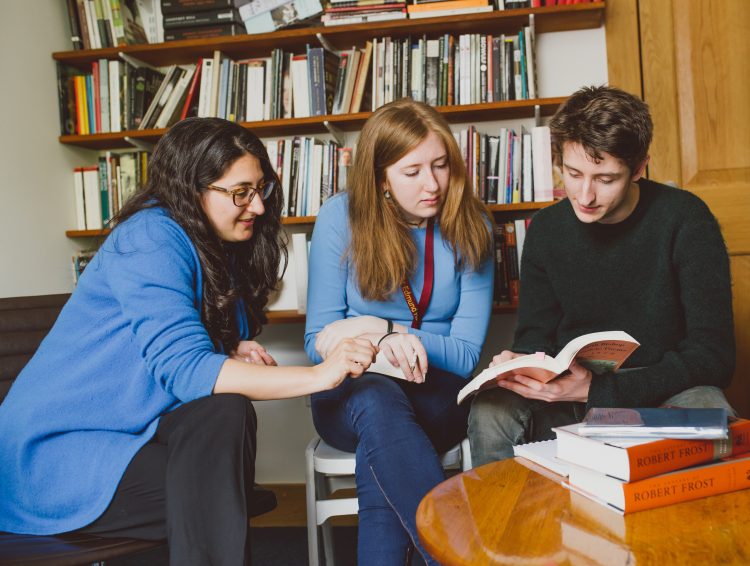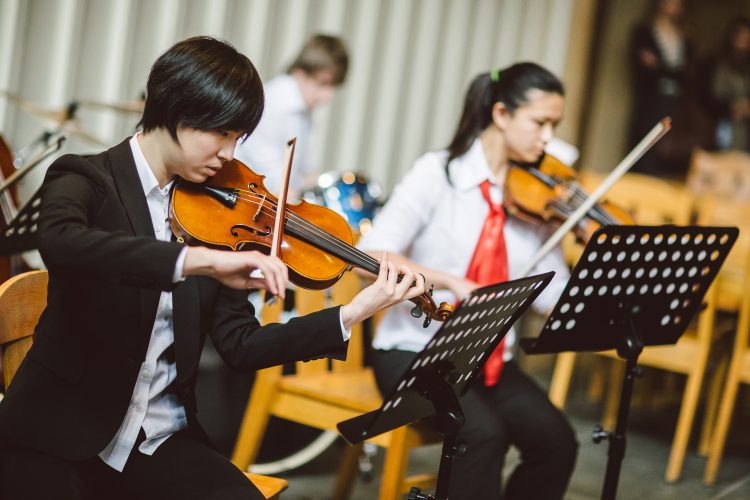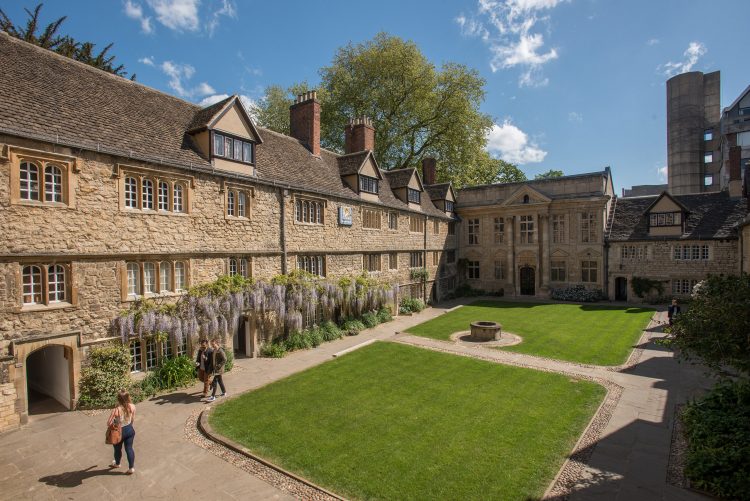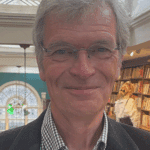Dr Alyn Shipton
Honorary Fellow
I came up to the Hall in 1972 on an Open Scholarship to read English Language and Literature. Coming from a state grammar school, I had been quite daunted about applying to Oxford at all, but on a 1971 school trip to see Othello at the Playhouse we dropped in to look at a number of colleges and I was captivated by the small scale and friendly atmosphere of the Hall.
Alyn Shipton presents Jazz Record Requests for BBC Radio 3, and is an award-winning writer and broadcaster. After leaving St Edmund Hall in 1975, he became a publisher, working for Macmillan and overseeing the Grove Dictionaries of Music imprint, working with musicologists and contributors on both side of the Atlantic. He left Macmillan in 1987 to join Blackwell Publishers in Oxford, where he was head of humanities reference publishing and also a director of a joint venture imprint with the National Computing Centre in Manchester.
After beginning his broadcasting career in local radio, Alyn joined BBC Radio 3 in 1989, and has subsequently presented several series for the station, notably the guide to the works of individual musicians, Jazz Library (over 100 of which remain in perpetuity as podcasts on BBC Sounds).
For these programmes and his work on the BBC World Service series Jazzmatazz, for which he interviewed over 200 of the world’s leading musicians, he was awarded the 2010 Parliamentary Award as Jazz Broadcaster of the Year. He also won the Marian McPartland / Willis Conover Award for lifetime achievement in jazz broadcasting from the Jazz Journalists’ Association in New York.
Alyn’s books on jazz and popular music have garnered several awards, notably for his biography of Dizzy Gillespie and his New History of Jazz, which both won Association of Recorded Sound Collections (ARSC) awards for outstanding research in jazz. His biography of the singer Harry Nilsson won an ASCAP Virgil Thomson / Deems Taylor Award for Excellence in Pop Music Research in 2014. He has written several more biographies, including lives of Ian Carr, Fats Waller and Cab Calloway, and collaborated in writing the memoirs of jazz musicians as varied as Danny Barker, Doc Cheatham, Chris Barber and Sir George Shearing. His study of saxophonist Gerry Mulligan’s 1950s quartets was highly commended in the 2024 ARSC awards. He has taught jazz history at the Royal Academy of Music since 2008 and became a research fellow in 2010.
A bass player since his school days, Alyn has performed and recorded with numerous bands, including a long association with trumpeter Ken Colyer, tours with American stars such as Bud Freeman, Herbie Hall and Don Ewell, and co-leading the Buck Clayton Legacy Band, playing music bequeathed to him by the great swing trumpeter.
He has brought his musician colleagues into the Hall to work with students, as well as organising a fundraising concert for HallMarks. He has also worked with Hall writers, running sessions on ghost-writing and biography among other topics.
A follow-up visit to meet some undergraduates convinced me that this was the place for me. Fortunately I was quite a voracious reader, and that stood me in good stead in the entrance exam and interview. My English master at school had suggested that reading round a topic was a good idea, and it was certainly helpful in the interview that I’d read e e cummings’ The Enormous Room and Edmund Blunden’s Undertones of War when we came to discuss the World War One poets. Nonetheless, the award of a scholarship was a bit of surprise! So my first tip is to read as much and as widely on every area of your A-level work as you can, even before you arrive in Oxford.
All the way through school I had a bit of a reputation as a dabbler in all sorts of things alongside the subjects I was supposed to be studying. For a time I got so interested in printmaking I thought seriously about jacking in Oxford and going to art school instead. But I was also playing the double bass at county orchestra level, and music was an equally strong pull. So once I arrived at the Hall I realised that the University is a dabbler’s paradise. Artistic interest was helped by attending life drawing classes at the Ruskin School of Art, and there was as much music as I wanted, as every orchestra in Oxford was short of a bass player! We had quite a good orchestra at SEH one year and did a creditable performance of the Mozart Clarinet Concerto in the Wolfson Hall.
I failed to turn up to quite a lot of English lectures (though I was always there for the star turns like Dame Helen Gardner on Eliot and Donne) but instead found myself at the head of the queue for Sir Nikolaus Pevsner’s weekly Slade lectures on British art and architecture (given at the top of the Ashmolean with ancient monochrome slides projected on a vintage magic lantern), and Roy Jenkins’ brilliant analyses of American politics. I got into student journalism, and realised nobody wanted to review classical music or jazz for the university magazine, Isis, so suddenly found I had a pair of free tickets for almost every concert I wanted to go to. (In my first Michaelmas term these ranged from Segovia at the Sheldonian to Oscar Peterson and Buddy Rich at the New Theatre.)
I also found that a pile of records built up in the magazine offices and as nobody else wanted to review them, I did, building up a decent collection and paying for it by tapping out a few thousand words. (All done on an old-fashioned typewriter!) Then there was student drama, and as well as acting and directing for the John Oldham Society in the Hall, there was music to be written and played for other productions including the OUDS revue and the Oxford and Cambridge Shakespeare Company’s production of Much Ado About Nothing, directed by the then up-and-coming Elijah Moshinsky. So my second tip is, throw yourself into everything the university has to offer. My reviewing of concerts and records was invaluable when I came to do the same job for The Times, twenty years later, and the interviews I did for Isis also gave me what would turn out to be valuable experience when I later did similar jobs for the Guardian and the Telegraph, not to mention over 750 interviews for BBC Radio 3! The free tickets and records aren’t so bad, either!
Obviously, despite all this extra activity, I still had to get the work done for my English course. So I worked on being able to write clean, tidy final essay drafts, with no revision. My main weekly literature tutorial tended to be before lunch on a Thursday, so I’d do the reading in the first part of the week, and then get up at seven on Thursday and knock off two or three thousand words by 11. Then there was just time for a cup of tea, before wandering along to my tutor’s rooms. Anglo-Saxon and Middle English was a matter of short term memory – cramming the stuff the night before, and then dashing from the library for a pint at the Cricketers (now the Mad Hatter on Circus St) before closing time.
For the most part I could hang onto the necessary vocabulary for the next 18 hours or so. I do confess, however, to spending part of the long vac in 1973 doing my own translations of Gawain and The Pearl, and totally immersing myself in the 14th century language subsequently made those short term memory exercises a lot easier. I’d also worked in Denmark for part of the summer and somehow hearing that Scandinavian language as a living thing made the medieval texts seem closer and easier. So tip number three is work on your writing so that it is as easy as breathing, and use your vacations to travel judiciously and get the kind of in depth reading done that you can’t do in term time.
In my third year, the looming question arose of what on earth to do next. I was accepted by Oxford to do an M. Litt on Dylan Thomas, but then had second thoughts and applied for a PhD at the Courtauld Institute in History of Art for which I was accepted, so I said no to Oxford. I’d been closely involved throughout 1973-5 with a couple of contemporaries in cataloguing and extending the SEH art collection so this Courtauld place furthered another of my dabbler’s interests. But my father – always pragmatic – thought I ought to have a safety net in place in case I didn’t get a good enough degree to be able to take up the PhD. So almost on a whim I applied for Macmillan Publishers’ trainee scheme. To my surprise I was one of the three candidates accepted that year, so reluctantly I turned down the Courtauld and went off to be a publisher. (I did do a PhD in music at Oxford Brookes, thirty years later, but that’s another story!)
My first job was editing children’s literature, and everything I’ve said so far about Oxford was useful preparation: a broad spread of interests; the ability to produce quick, tidy copy; an awareness of overseas markets (I’d also spent other long vacs in France); and the ability to read texts quickly and assimilate them. When I eventually moved from publishing to writing and broadcasting, the same things held true, all making use of skills I had learned at SEH. And, as I’ve said in talks to the Hall Writers’ Forum, it was also Oxford that stimulated my desire to be a biographer, having gone to hear Michael Holroyd at MoMA talking about his life of Lytton Strachey. That one evening of listening to one of our great biographers convinced me that life-writing was the way I wanted to go with my own work, and several biographies later, I’m sure that was the right decision.
“I was inspired to become a biographer by a talk given by Michael Holroyd at Modern Art Oxford in 1973. The English course itself gave me the discipline to write tidy first drafts, to length and on time, with no rewrites or revisions. This discipline has been an essential element in writing overnight concert reviews for the Times for the last twenty years, and in writing up the research (the interesting bit) in my biographies.”
Where next?

Hall Writers' Forum

Music

Alumni

Dr Alyn Shipton
PhD, MA, (Hon) ARAM
- Honorary Fellow
- 1972, English
Research Fellow and Lecturer in Jazz History, Royal Academy of Music; Presenter BBC Radio3